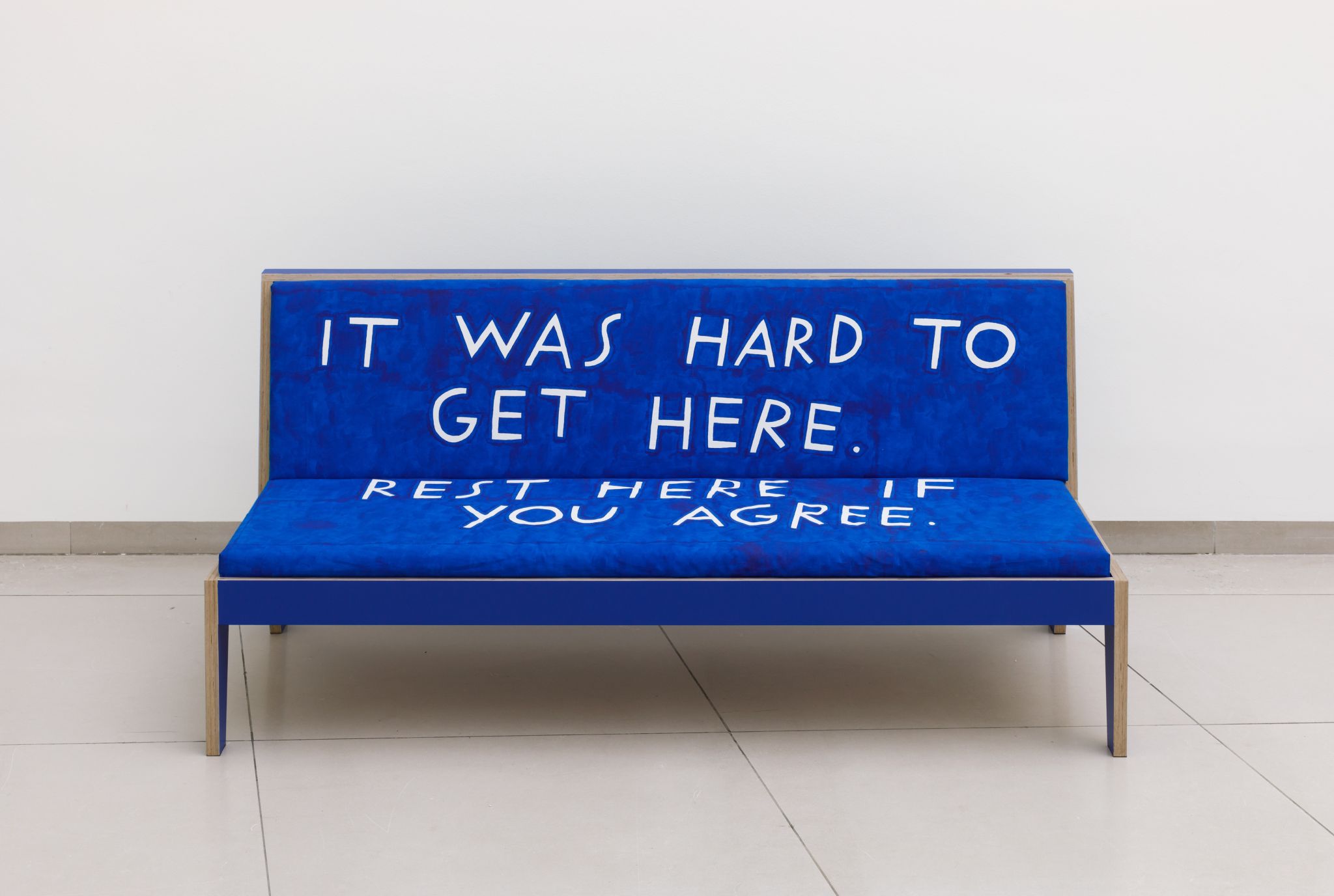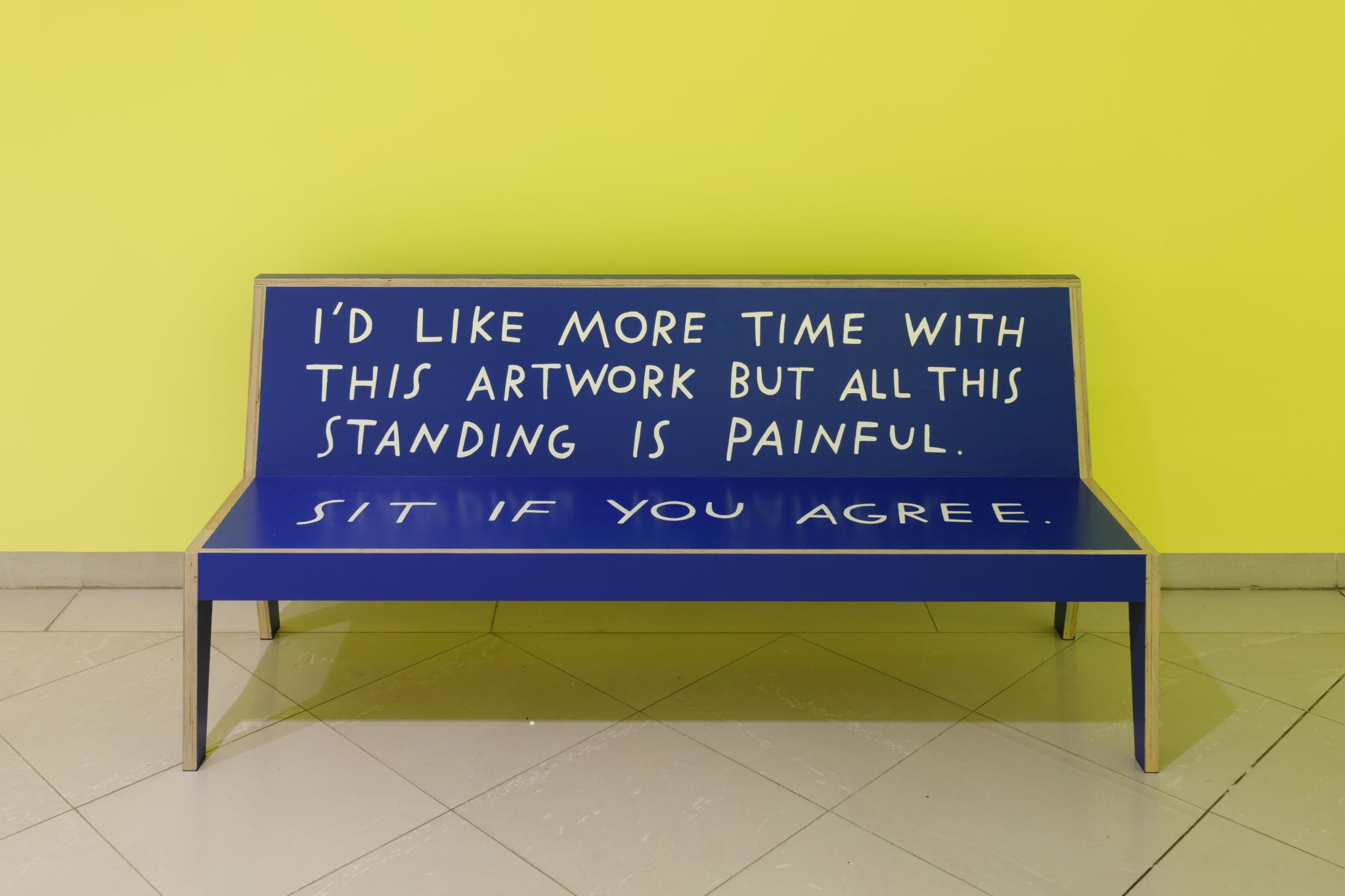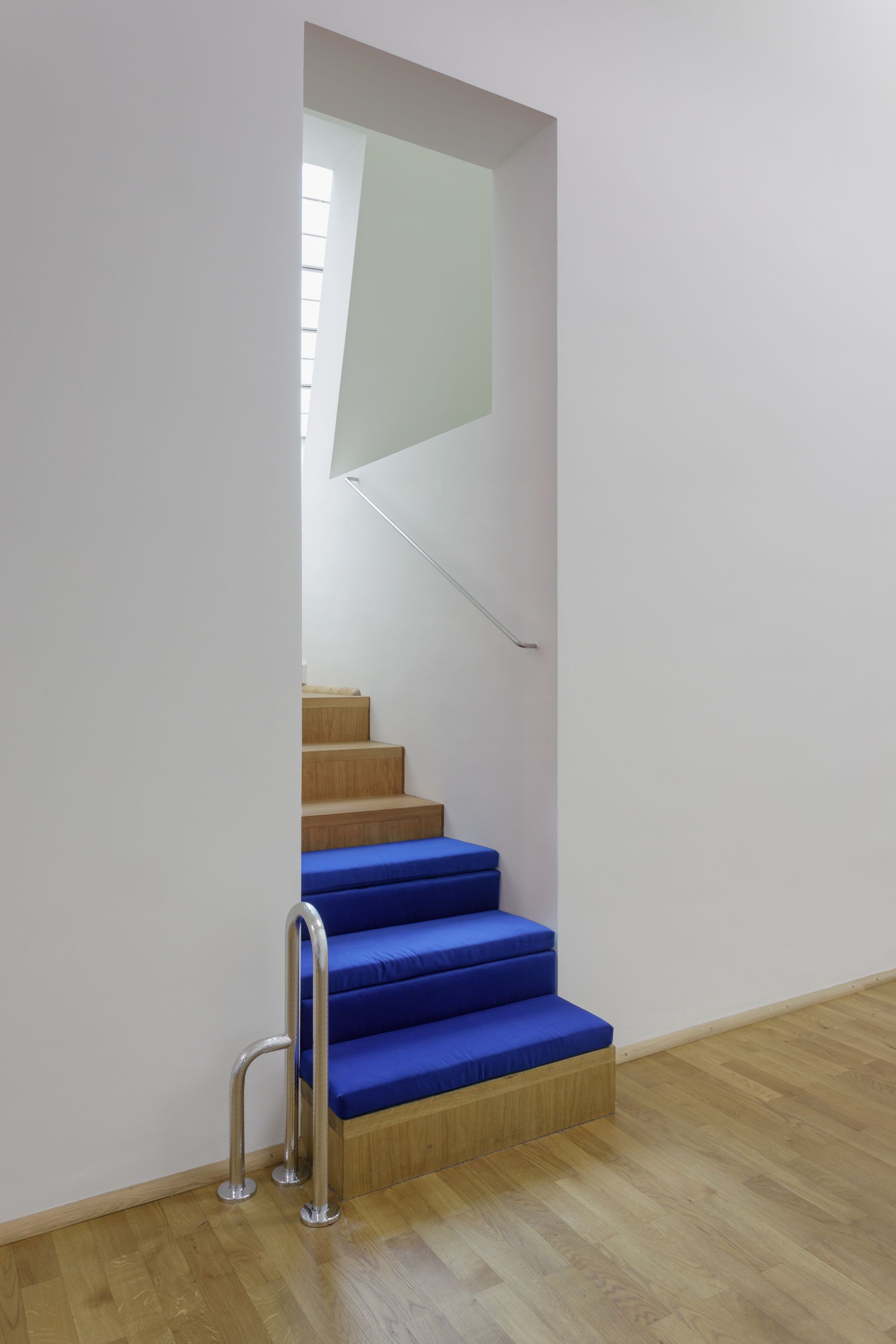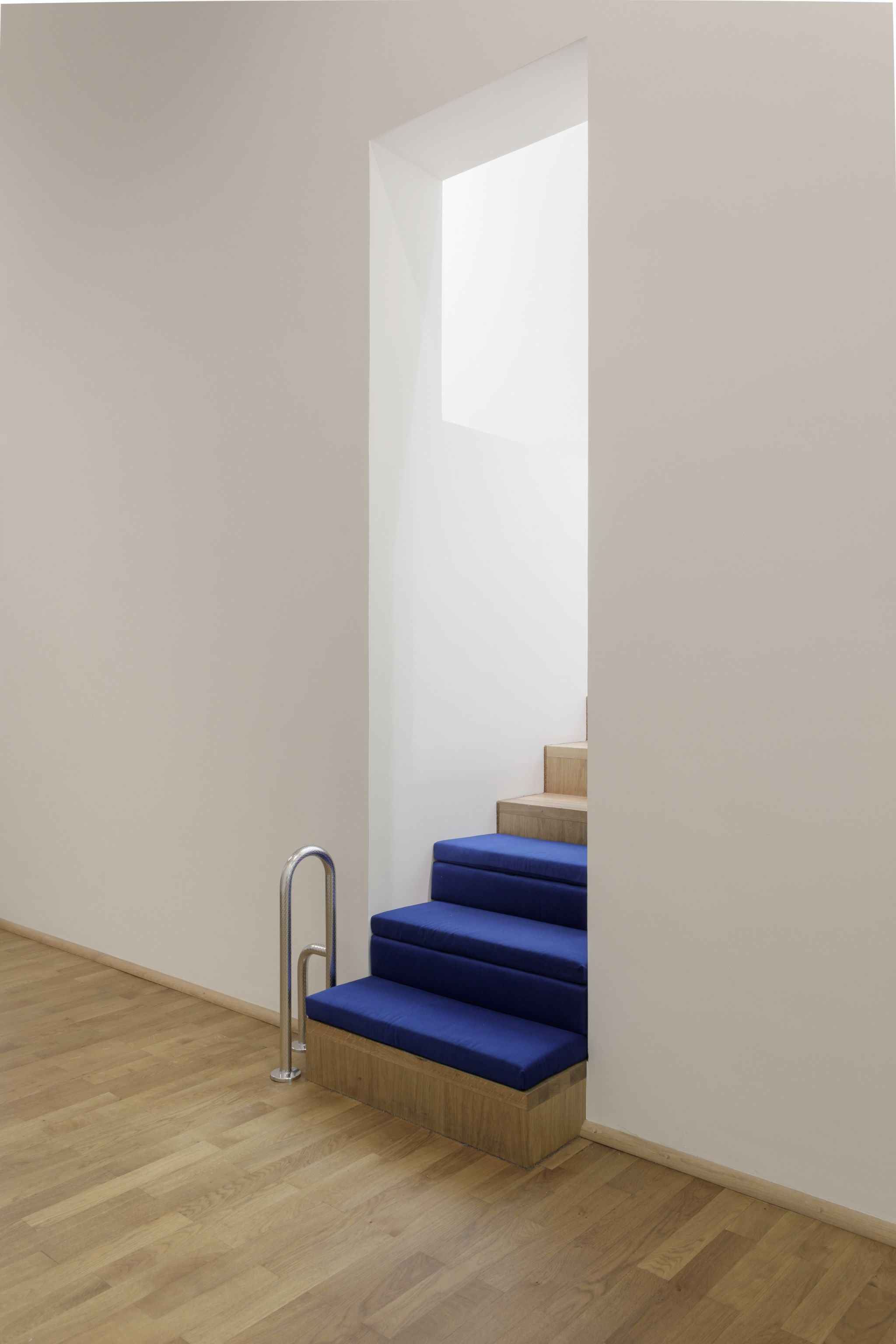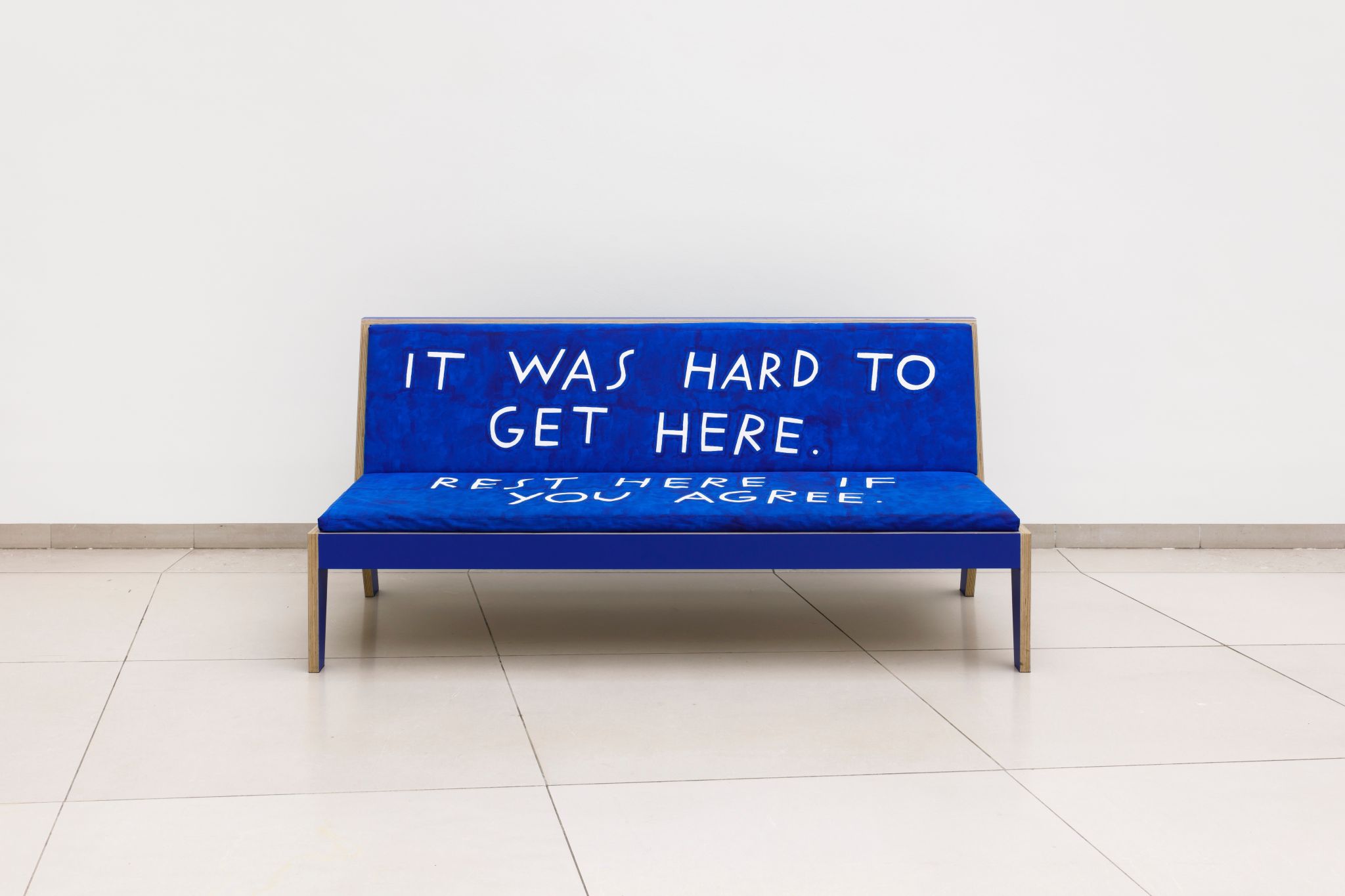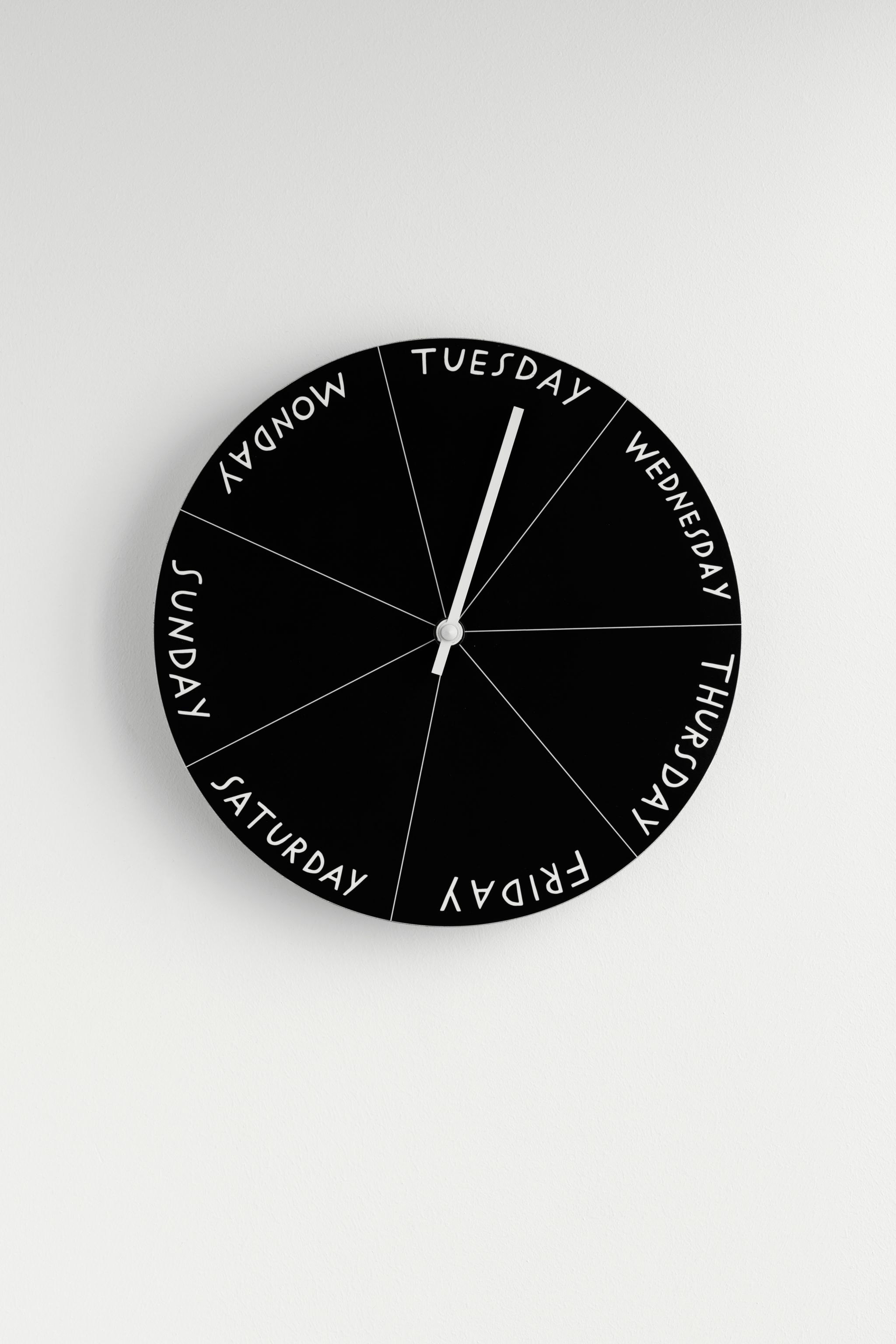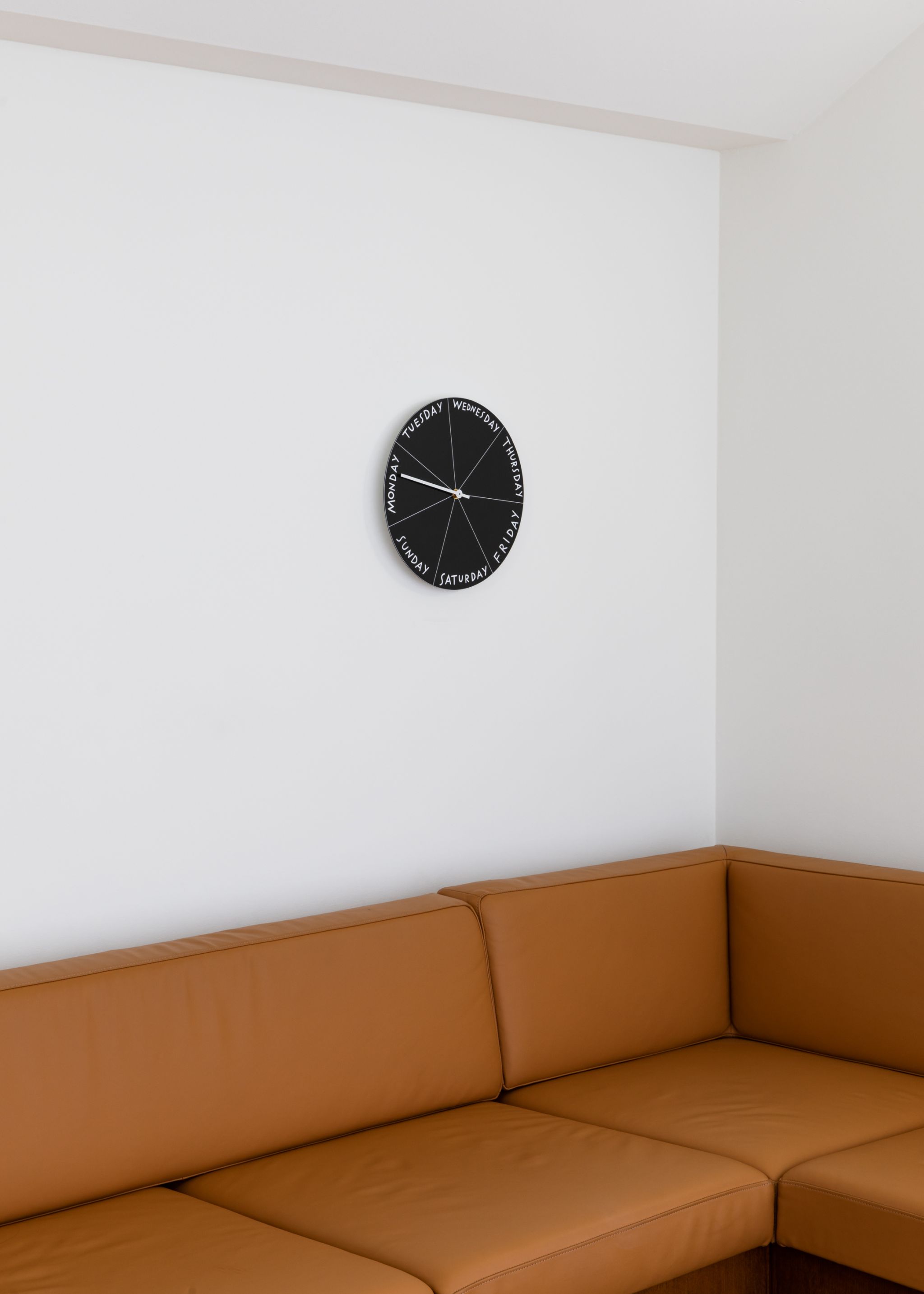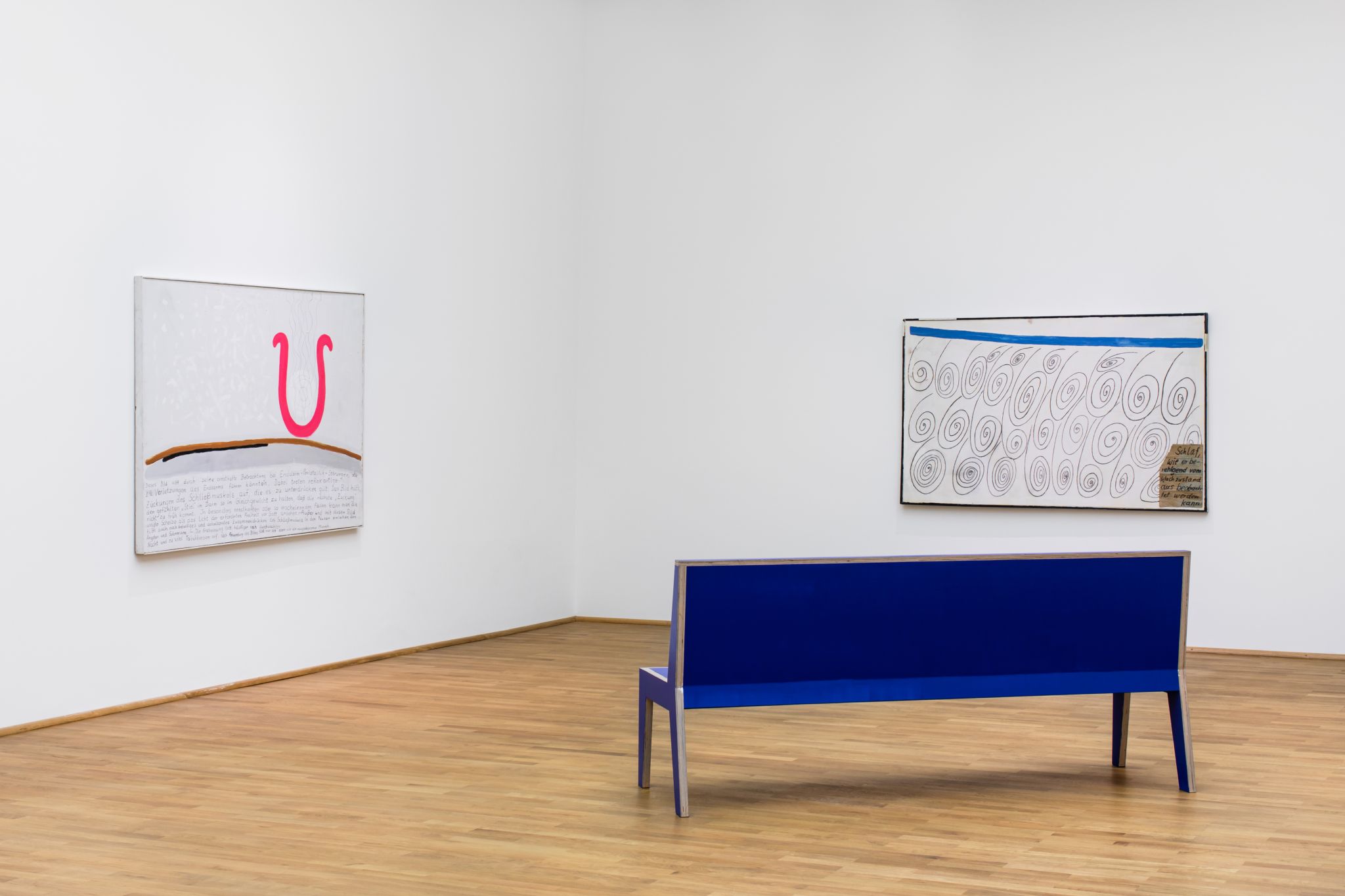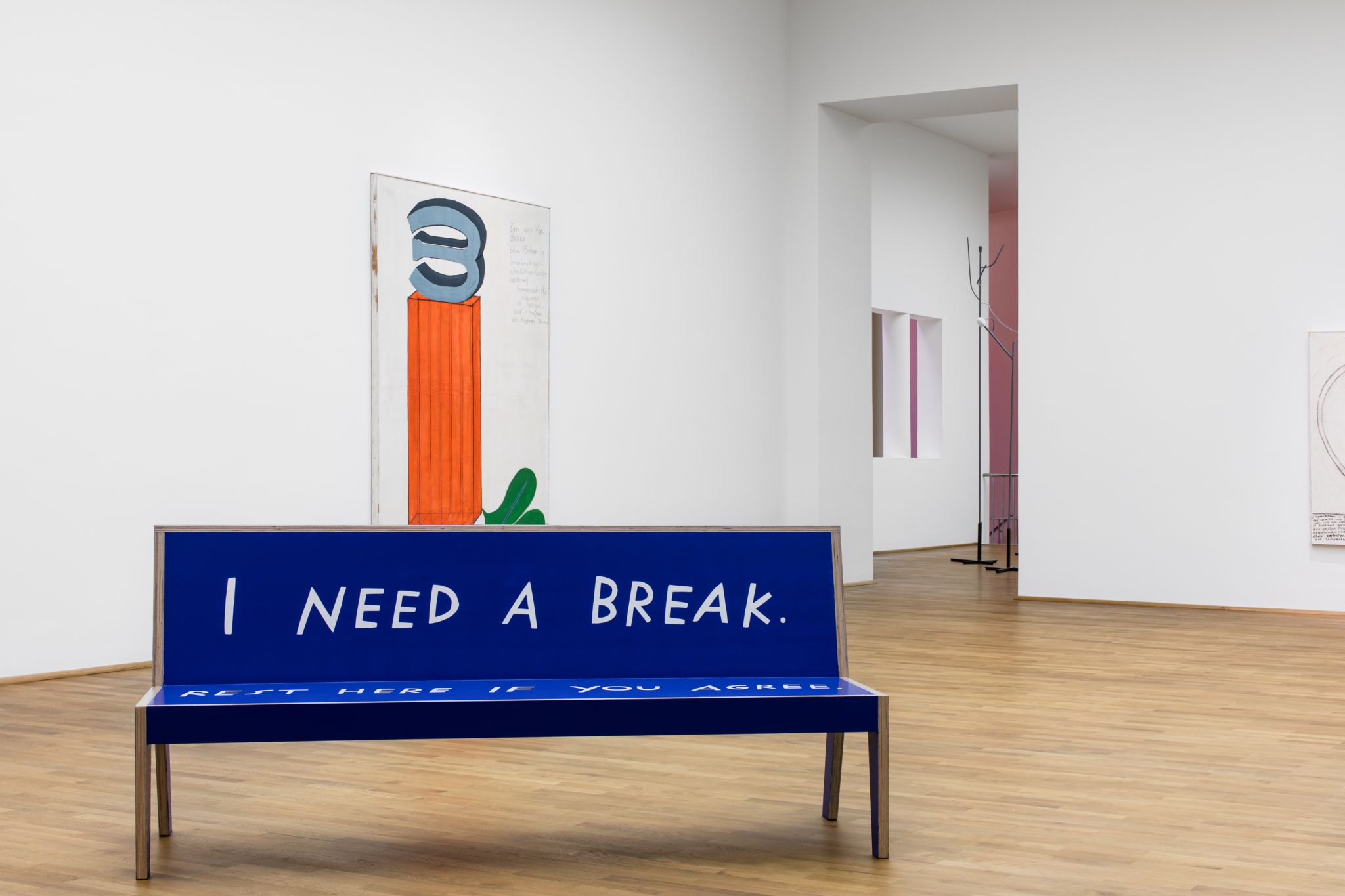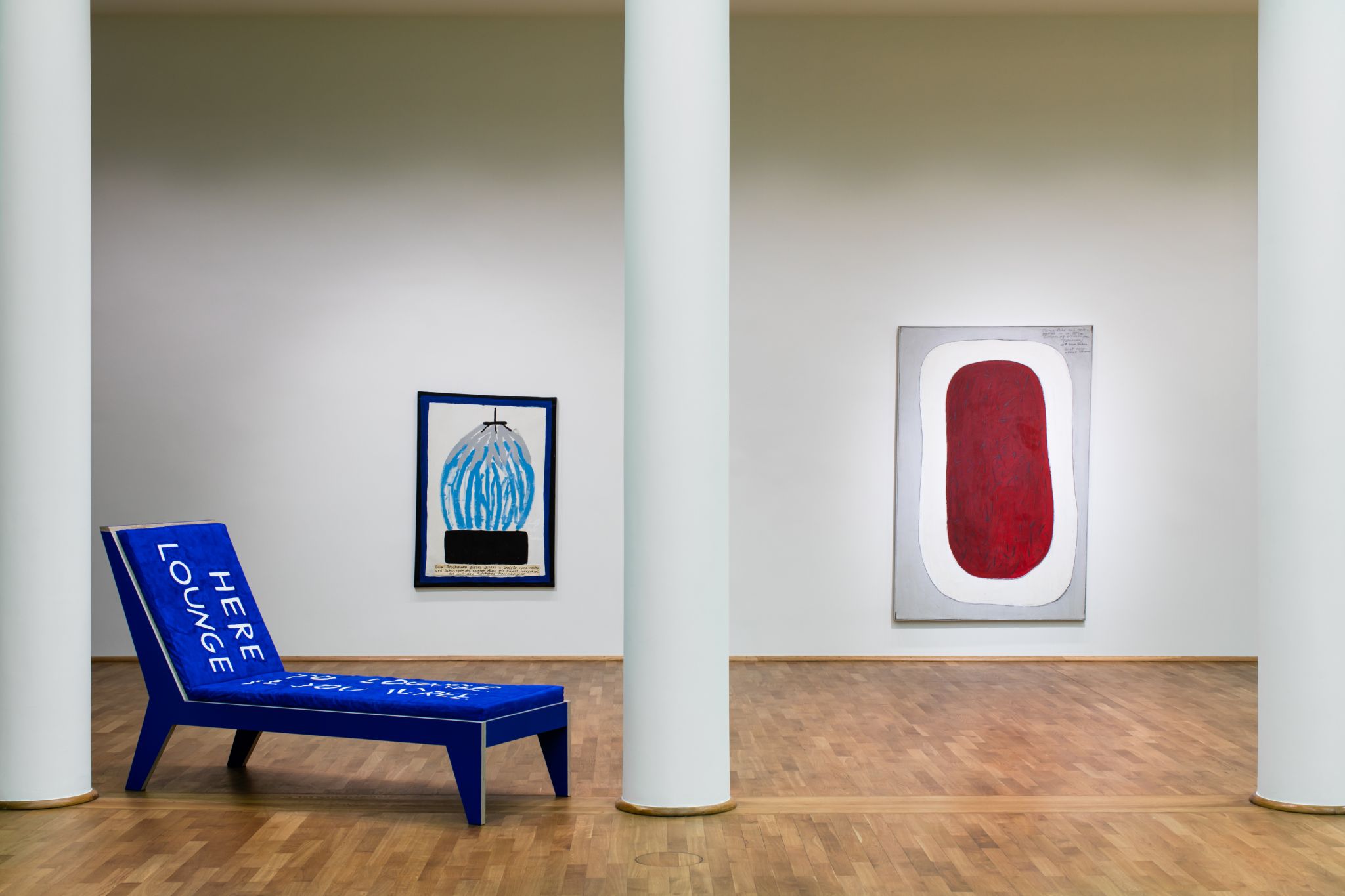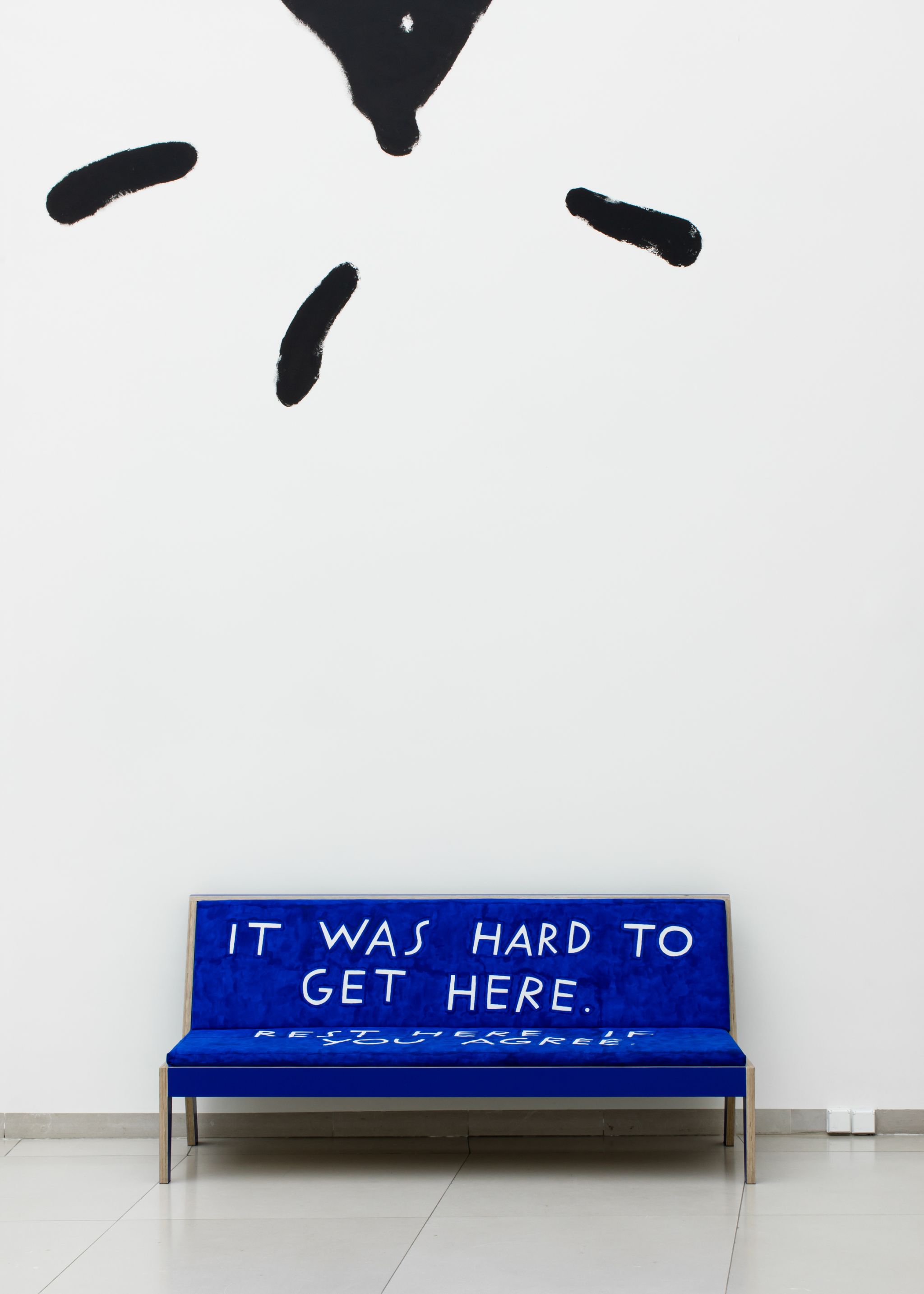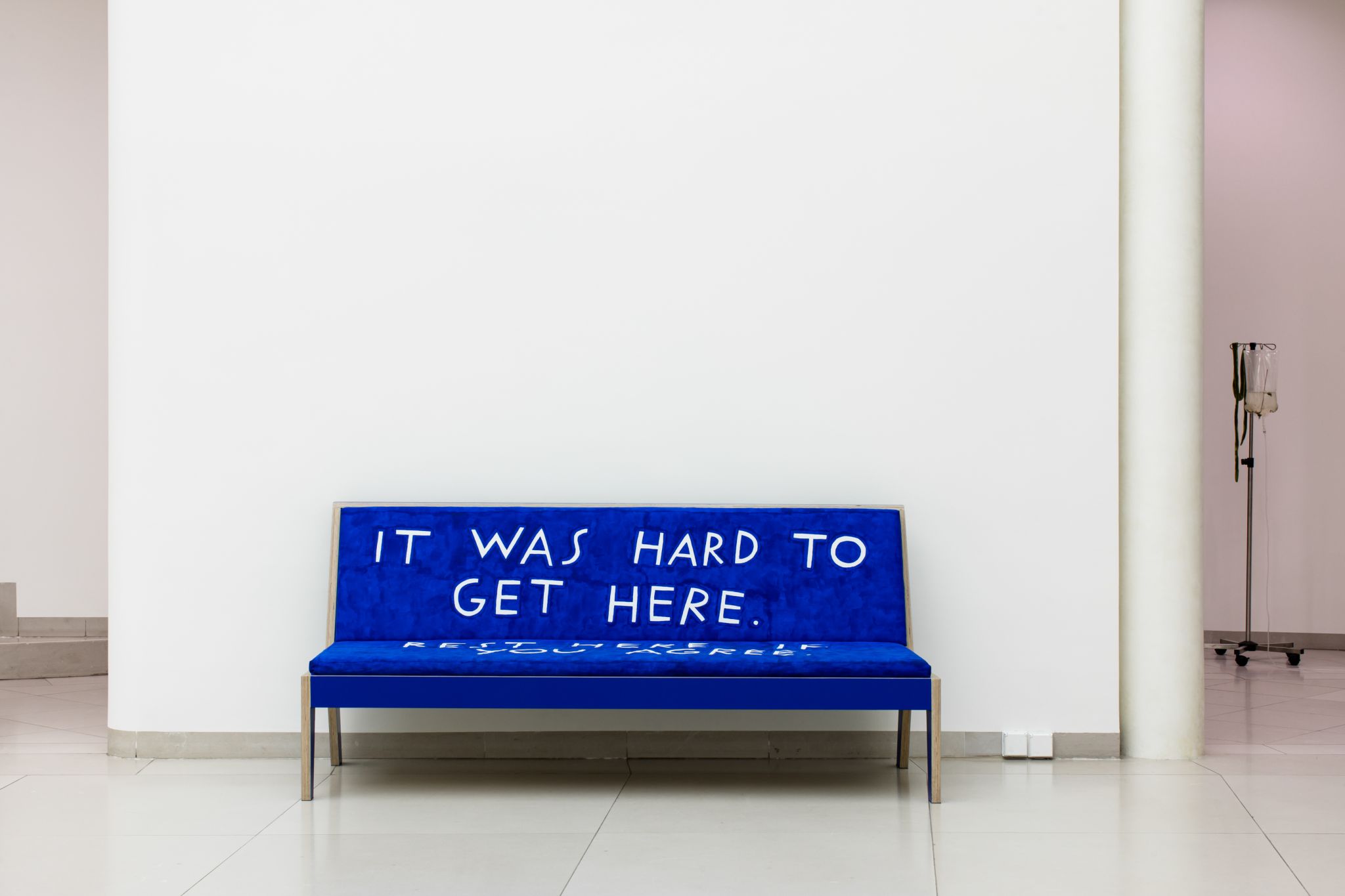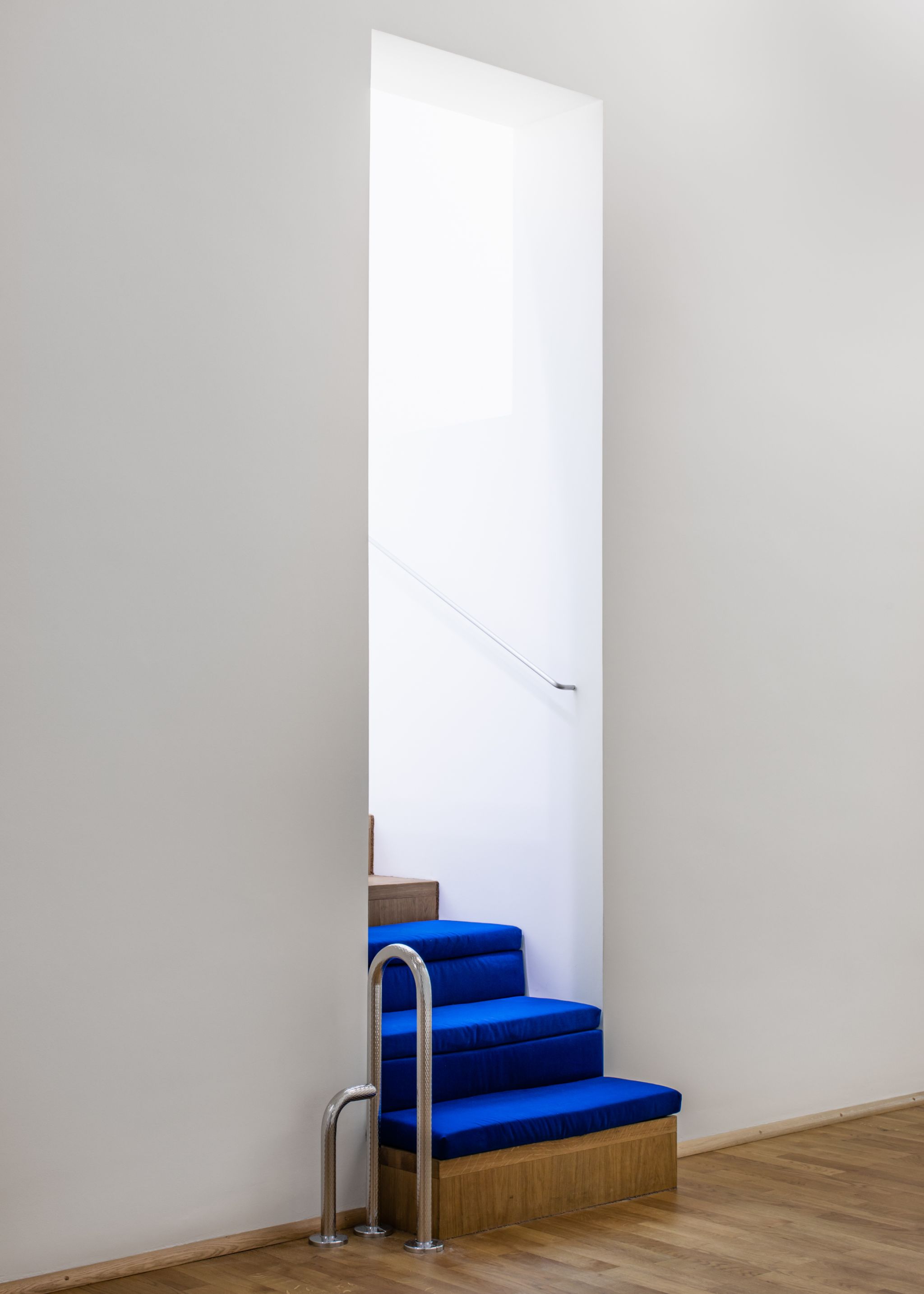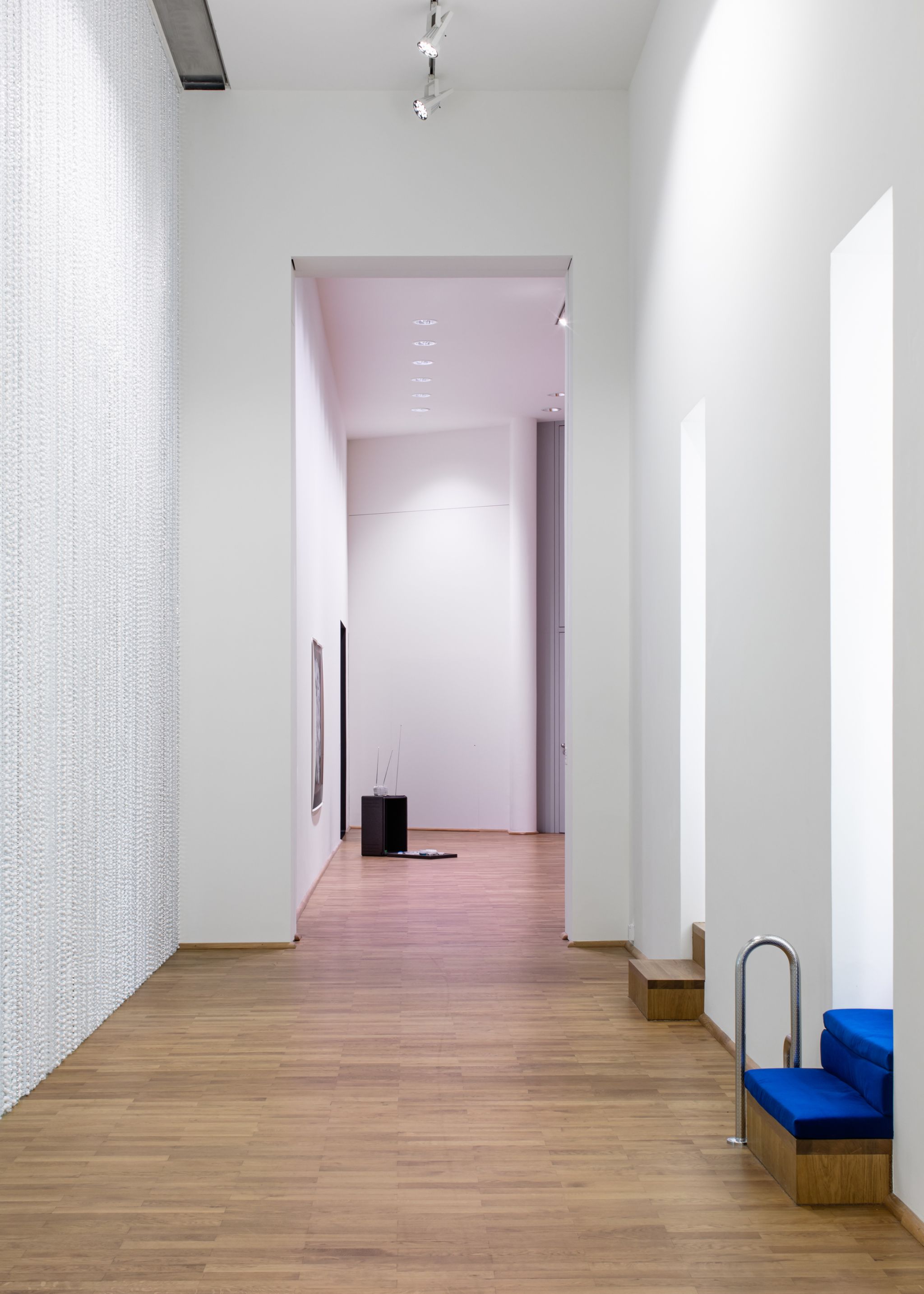-
“You don’t need to be fixed, my queens—it’s the world that needs the fixing.”
read more
— Johanna Hedva
In a world that builds on unceasing bodily functionality, mobility, availability, and their constant expansion, every form of dysfunctionality leads to immediate exclusion or is declared in need of treatment. The violence inherent to normative conceptions of the body, and thus to education, labor, architecture, medicine, and pharmacology, is fatal. Human beings are constantly restricted and disabled by social barriers. Accessibility, however, is the basis for participation and justice. Sickness is not an individual but a collective societal matter. Health is not just a questionof medicine, it is a political terrain defined by social power relations.
Wednesday – Friday 12 – 6 pm
Saturday 12 – 4 pm and by appointment
Finnegan Shannon – Crip Time
MMK, Frankfurt, DE
18.09.21 – 30.01.22
Finnegan Shannon
Do you want us here or not (MMK), 2021
Plywood, paint, foam, fabric, fabric paint
Production by: Jack Brennon, Julia Eichler, Finnegan Shannon, Mikael Fransson, Patrick Keaveney, Zabotka S. Palm, Daniel Sarvari
90 × 200 × 67 cm
Height of the seat: 45 cm
Finnegan Shannon
Have you ever fallen in love with a clock?, 2021
Day Clock mechanism, DiBond, clock hand, paint
ø 34 cm
Finnegan Shannon
The only thing I like about stairs is that they can be used as a place to sit in a pinch, 2021
Velour, foam, grab bars
Production by: Julia Eichler, Zabotka S. Palm
Dimensions variable
